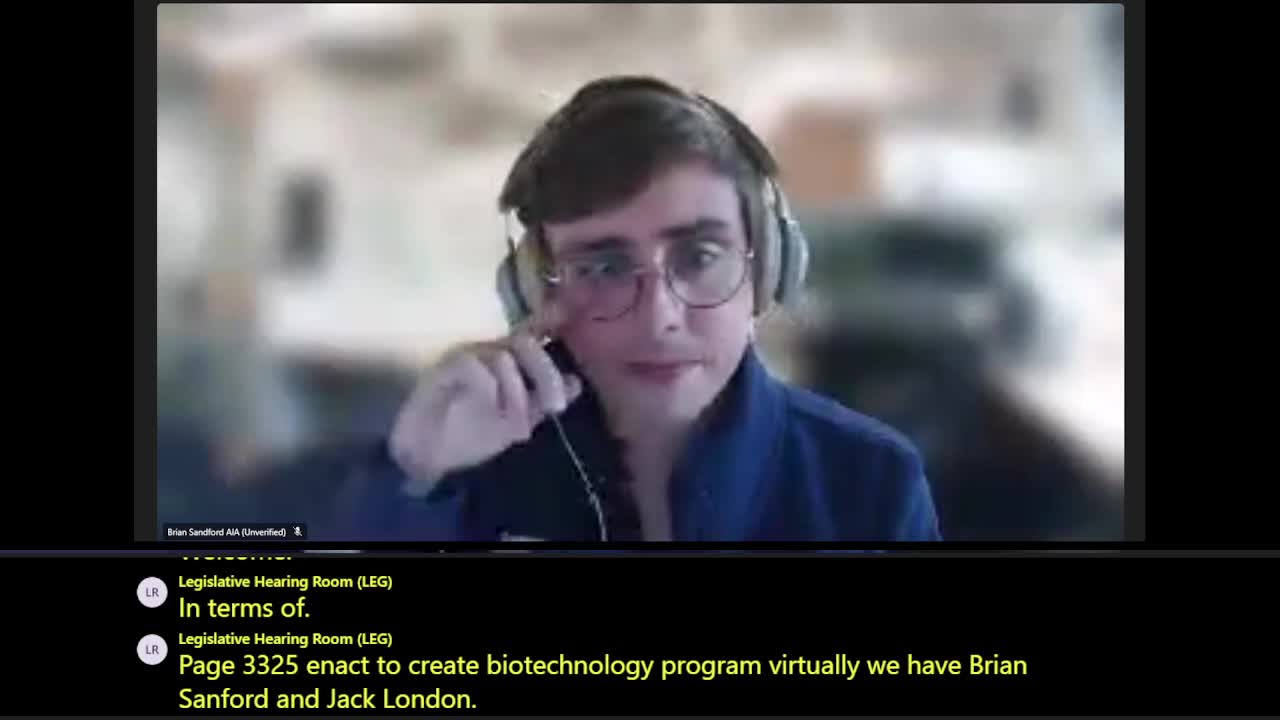Climate Advocates, Architect Back 'Buy Clean' Bill to Cut Embodied Carbon in Public Projects
Get AI-powered insights, summaries, and transcripts
Subscribe
Summary
Representatives of the Massachusetts Climate Action Network and practicing architects urged the committee to report H.3325, creating a Buy Clean program to reduce embodied carbon in state procurement, and to accelerate the timetable for targets now set as January 2030 for large projects.
Jack Lundgren, director of Embodied Carbon Initiatives at the Massachusetts Climate Action Network (MCAN), and Brian Sanford, a registered architect, testified Oct. 8 in support of House Bill 3,325 to establish a Buy Clean Massachusetts program.
Lundgren told the committee embodied carbon—greenhouse gas emissions from manufacturing, transporting and disposing of construction materials—accounts for a large portion of the life‑cycle emissions of new construction and is a rising share as buildings decarbonize their operations. He said public construction represents about a quarter of embodied carbon nationally and that cement production accounts for about 8% of global CO2 emissions. Lundgren argued Buy Clean would leverage government purchasing to increase demand for low‑carbon materials.
Brian Sanford said the bill’s provisions to create a technical working group and a public database of environmental product declarations would reduce compliance burdens. Sanford urged the committee to accelerate the bill’s proposed dates, saying the draft sets a January 2030 start for large state projects and he believes earlier dates are feasible and necessary to meet the Commonwealth’s 2050 climate goals.
Why it matters: The bill seeks to use state procurement to reduce life‑cycle emissions from public construction by favoring lower embodied‑carbon materials, which advocates say will drive market innovation and reduce long‑term emissions associated with public buildings and infrastructure.
